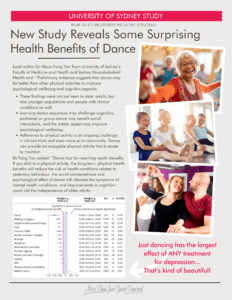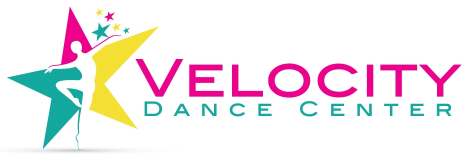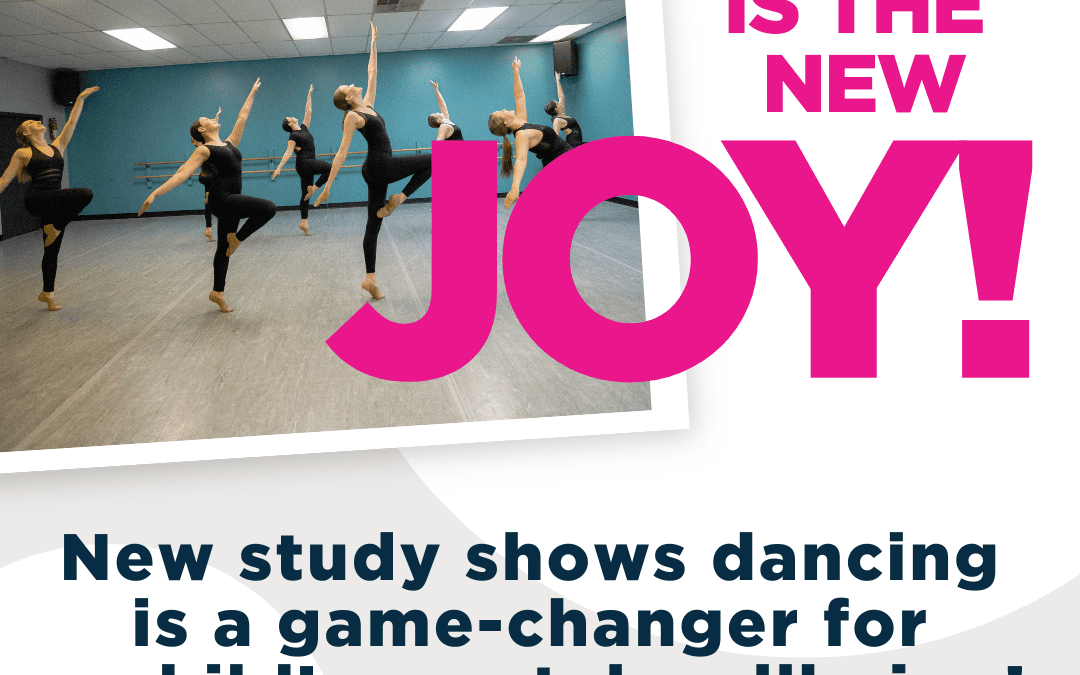As May unfolds, Mental Health Awareness Month takes center stage, inviting us all to explore avenues that promote mental wellness. Here at Velocity Dance Center, we strive to provide a safe and healthy environment for all students and wanted to take this time to share some of our favorites takes and studies on Mental Health in Dance.
The Simple Joy of Dance
As parents, we want to nurture our children’s physical, emotional, and social development from the earliest stages of life, which is why there is a natural connection between dance and happiness in children. Dance embodies the purest form of joy and bliss. Most parents can remember the time when our children took their first step(s), naturally adding bounces or bops along with their steps, followed by the biggest smiles and giggles. From a very young age, kids acknowledge dance as a safe and happy way to express themselves. Whether pirouetting in ballet, tapping away in tap class, or freestyling in hip-hop sessions, the delight of movement knows no bounds. It’s in these moments of expression and exploration that children discover the magic of dance—a place where creativity knows no limits.
New Study Shows Benefits of Dance
Just as dance strengthens little hearts and bodies, it also nurtures emotional and mental resilience. The wide array of benefits of dance aren’t just for children, they are for all ages! In today’s fast-paced world, where stressors can weigh heavily on young and old shoulders alike, dance offers a sanctuary for self-expression, creativity, and stress relief. Dance classes foster invaluable social connections essential for mental health for both children and older adults. As dance students interact with peers in the studio, they naturally learn and practice teamwork, communication, and empathy—skills that transcend the dance floor and enrich their lives. Dance creates a sense of community and belonging, nurturing positive mental health outcomes for people of all ages.

The University of Sydney recently did a study about the health benefits of dance and the findings were recently published in Sports Medicine. The bottom line of the study is dancing is more beneficial to one’s mental health regulation and recovery than any other singular activity.
Dr. Chelsea Pierotti and Mental Health in Dancers
Not everything in the dance world is positive, but here at VDC, our beliefs on mental health in youth dance align with Dr. Chelsea Pierotti, PhD. Dr. Pierotti is a longtime dancer-turned-sport-psychologist, coach, podcaster and motivational speaker who turned her passion of dance and mental health into her purpose and thankfully is willing to pass her knowledge onto others.
“Dance can teach us about self-discipline, teamwork, confidence, grit and resilience without destroying a dancer’s self-esteem. We can learn the same incredible life lessons through dance without the negativity. We can teach our young dancers skills like confidence, resilience and self-control through the tools of sport psychology.
First, I value community. We can’t and shouldn’t go it alone, and I focus on support over competition. Second, I value personal growth. All of the dance educators I work with seem to agree with my value of learning. There’s always more, we’re all a beautiful work in progress. I believe in integrity, where I give the best I can in the moment and strive to show up as my best self, whatever that looks like that day. Next, I value confidence. I want to help all of us step into our strengths as coaches, knowing we can help our dancers do the same. And finally, I believe in impact. We are all doing this work for the impact we can make on the dancers we care about. We are here for more than just dance. “
Please visit Dr. Chelsea Pierotti’s website here for more information or click on her podcast link to listen!

